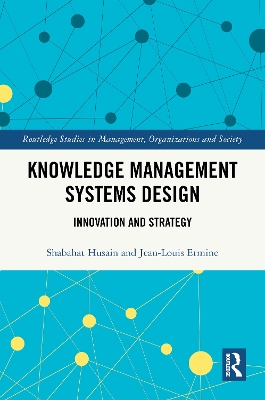Routledge Studies in Management, Organizations and Society
1 total work
Knowledge Management Systems Design
by Shabahat Husain and Jean-Louis Ermine
Knowledge Capital, vital for organizations' sustainability, competitiveness, and stability, can be regenerated in a value-added manner, enabling the development of high-quality products and services through innovative Knowledge Management (KM) techniques. One effective approach is establishing and implementing ISO-compliant Knowledge Management Systems (KMS) across various sectors.
Covering nearly all aspects of Knowledge Management, this book offers a comprehensive overview of the evolution and description of core theories, along with their applications in a few case studies that thoroughly analyze the necessary procedures and technologies for developing KMS. The book encompasses the latest trends showcasing the increasing integration of artificial intelligence techniques within KM practices, as discernible through scores of service providers. Additionally, it addresses the challenges of measuring the effectiveness of KM techniques and the value they bring to organizations, thereby supporting the successful and sustainable implementation of KM. It also highlights innovative frameworks such as the Virtuous KM Cycle, MASK techniques, the Daisy Model, and the Husain-Ermine AI-KM Model.
The publication is an essential resource for students and researchers specializing in Knowledge Management, as well as for managers, academicians, and practitioners in both the public and private sectors.
